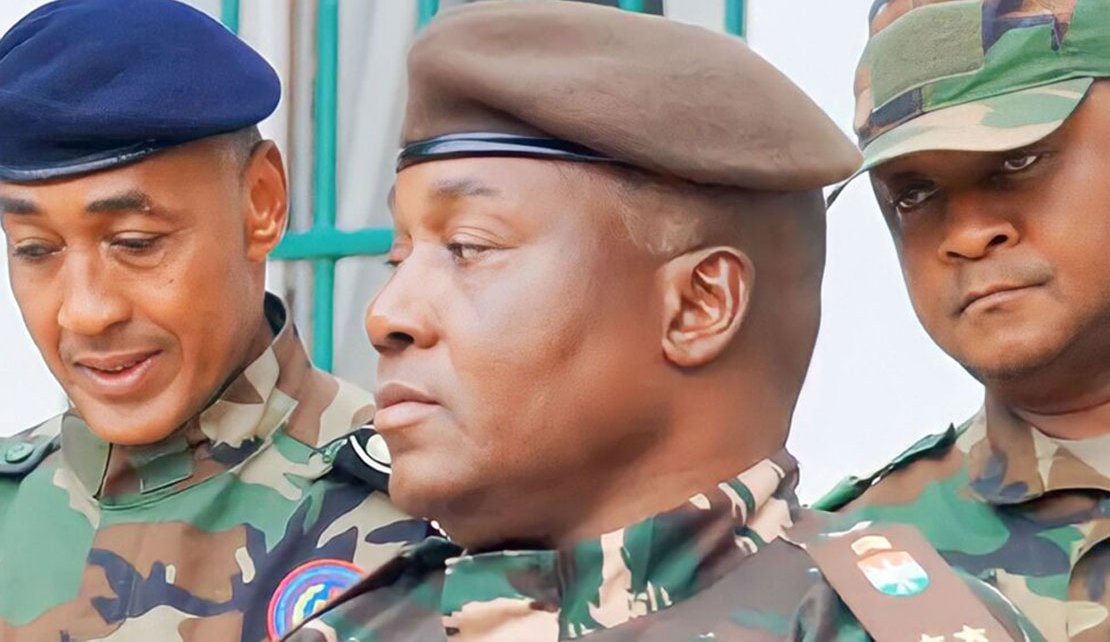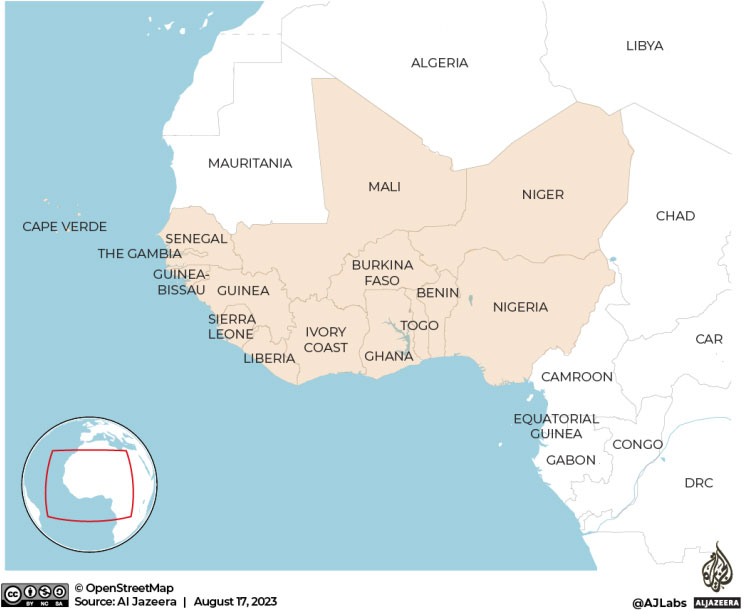NIGER | Coup leaders propose a three year transition to civillian rule - Francophone federation in the works?

NIAMEY, Niger, August 20, 2023 - General Abdourahmane Tchiani, Niger’s leader of the National Council for the Safeguard of the Homeland which snatched power from president Bazoum on July 26, has proposed a three-year transition of power after meeting a delegation of West African leaders on Saturday.
Speaking on national television late on Saturday, General Tchiani, said details on the potential transition, would be decided within 30 days at a dialogue to be hosted by the ruling military council.
“I reaffirm here that our ambition is not to confiscate power. I also reaffirm our readiness to engage in any dialogue, as long as it takes into account the orientations desired by the proud and resilient people of Niger,” he added.
“Neither the National Council for the Safeguard of the Homeland nor the people of Niger want war, and remain open to dialogue,” he said after his first meeting with delegates from the Economic Community of West African States (ECOWAS) in the Nigerien capital, Niamey.
“But let us be clear: If an attack were to be undertaken against us, it will not be the walk in the park some people seem to think,” he said.
ECOWAS has imposed severe sanctions on Niger following the July 26 coup and has ordered the deployment of a “standby force” to restore constitutional rule in the country. The bloc said on Friday that an undisclosed “D-Day” had been agreed for possible military intervention and that 11 of its 15 member states had agreed to commit troops to the operation.
In his 12-minute speech, Tchiani claimed ECOWAS was “getting ready to attack Niger by setting up an occupying army in collaboration with a foreign army” and denounced what he called “illegal” and “inhuman” sanctions imposed by the regional bloc.
ECOWAS, despite threatening military intervention – is continuing to pursue diplomatic ways to reverse the putsch in Niger, the region’s seventh in three years.
Despite being a landlocked country, Niger has strategic importance for regional and global powers because of its uranium and oil reserves as well as its role as a hub for foreign troops involved in the fight against armed groups linked to al-Qaeda and ISIL (ISIS).
However, the proverbial horse may have already bolted through the gate, as an old proposal to forge a federation in francophone West Africa - to bring together Mali, Senegal, Burkina Faso and Benin shortly before they gained independence from France in 1960, - is back on the table.

"We could create a flexible federation that would be mutually reinforcing and respect the aspirations of both sides," Prime Minister Apollinaire Kyelem de Tambela said.
"Mali is a major producer of cotton, cattle and gold. Burkina Faso also produces cotton, cattle and gold," Kyelem de Tambela said during the trip on Tuesday and Wednesday.
"So long as we each take separate paths, we don't have much clout. But if you put Mali's and Burkina Faso's production of cotton, gold and cattle together, it becomes a powerhouse."
"Our forebears tried to create groupings, like the Mali Federation, which sadly did not last. But they showed us the way," Kyelem de Tambela said.
"One of my reasons for going to Mali is that for a long time we've been looking elsewhere for solutions when they're often right under our noses," he continued.
The two landlocked Sahel countries rank among the poorest and most volatile nations in the world, and have experienced few periods of calm since independence.
Creating a new federation should be undertaken now, before power is returned to civilians, "because when the politicians get back in, it'll be tricky", Kyelem de Tambela advised.
The new federation would include Niger, Mali, Chad, Guinea, and Burkina Faso.

However, according to an Associated Press report, many people in Niamey didn’t appear concerned over ECOWAS' threat that it will use force, while others wondered why the regional bloc hasn’t had the same resolve to tackle extremist violence.
“If ECOWAS has an army, it could mobilize 1,000 soldiers per country ... 15,000 soldiers. If ECOWAS was serious, why didn’t it consider mobilizing 15,000 soldiers to help Mali, Burkina and Niger, which are undergoing insecurity?” said Annassa Djibrilla, president of the Dynamic Citizen activist group.
Niger’s roughly 25 million people live in one of the poorest countries in the world, and any cuts in foreign aid could be disastrous. Already, citizens are feeling the effects after ECOWAS suspended all commercial and financial transactions between its member states and Niger and froze Nigerien assets held in regional central banks.
The bloc’s sanctions include halting energy transactions with Niger, which gets up to 90% of its power from Nigeria, according to the International Renewable Energy Agency. Earlier this week, power transmission from Nigeria to Niger was cut off, an official at one of Nigeria’s main electricity companies said, speaking on condition of anonymity because they were not authorized to comment.
The People’s Coalition for the Sahel, an informal alliance of several dozen Sahelian and West African civil society organizations, expressed concern for the military takeover and called for the protection of civilian populations to be a priority for all parties.
“Nigerien civil and political liberties must be preserved and safeguarded, including protecting the rights of civil society organizations and human rights defenders to continue their activities freely and safely,” the group said in a statement.
Meanwhile, Mali and Burkina Faso dispatched warplanes abs troops to Niger on Friday, in a show of solidarity against possible military intervention by the Economic Community of West African States (ECOWAS).
A report aired on Niger's state television highlighted joint efforts by Mali and Burkina Faso in support of Niger and the deployment of warplanes within Niger's borders.
"Mali and Burkina Faso turned their commitments into concrete action by deploying warplanes to respond to any attack on Niger," it said, noting the planes were Super Tucano fighter jets.
Burkina Faso and Mali, both under military leadership, previously released a statement of support for Niger against the planned ECOWAS military operation to alter the course of the coup in Niger.
It warned that any intervention would be seen as a declaration of war against Burkina Faso and Mali.
Gen. Abdourahamane Tchiani, the former commander of Niger’s presidential guard, declared himself the head of a transitional government last month after President Mohamed Bazoum was ousted in a military coup.
